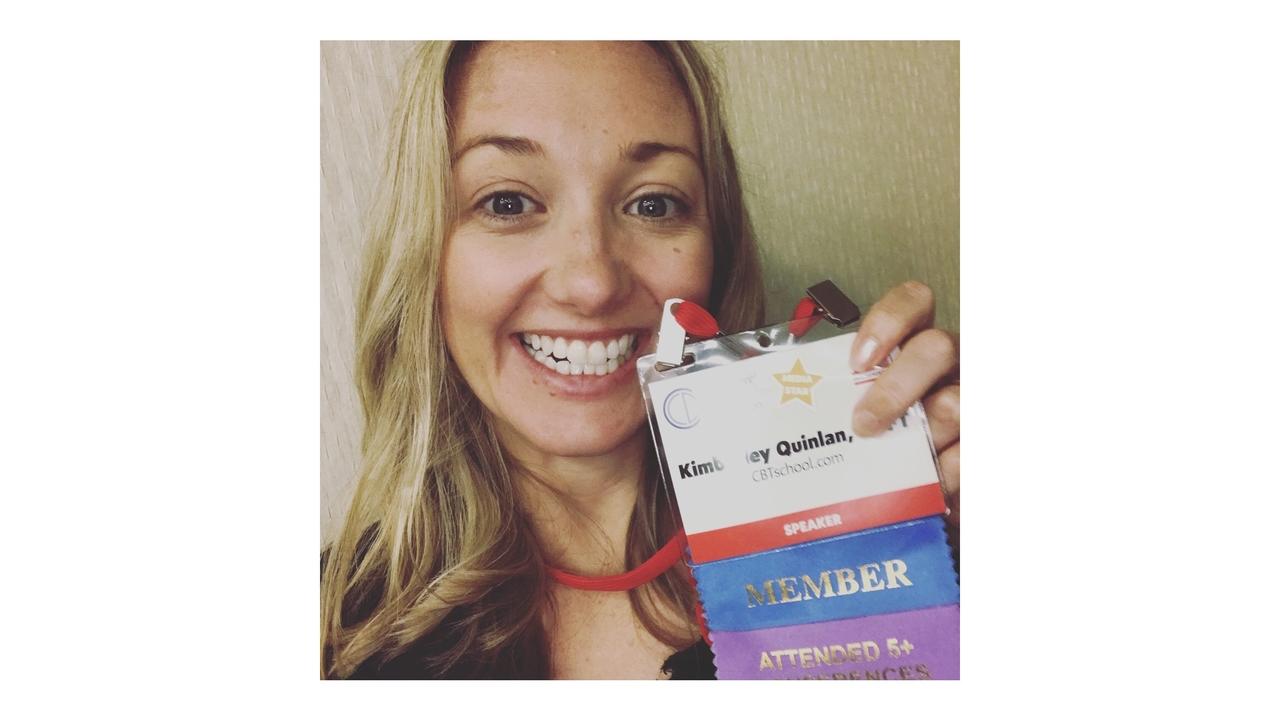My Key Takeaways From This Year's IOCDF Conference

Presenting at the International OCD Foundation (IOCDF) annual conference is one of the biggest honors that I have as a therapist who treats anxiety disorders. These conferences are amazing because they provide a mix of both treatment presentations and support groups. They bring together a community of people: those who struggle with Obsessive Compulsive Disorder (OCD), therapists who present evidence-based treatment for OCD, and advocates for mental health research and treatment. Another reason that I adore these conferences is that, in addition to OCD, they provide presentations and support groups on Body-Focused Repetitive Behaviors (BFRB’s) such as Excoriation Disorder (Skin Picking), Trichotillomania (Hail Pulling), and Body Dysmorphic Disorder (BDD), as well as co-occurring Substance Abuse and Eating Disorders.
At this year’s conference, I ran several support groups and had the privilege of attending some incredible presentations put on by leading treatment providers around the world. I’ll be sharing some of my reflections and key insights from this experience in this episode of Your Anxiety Toolkit. Every conference that the IOCDF puts on is wonderful, but I have to say that this year’s conference was my favorite by far!
Don’t miss the most recent podcast episode!
You can listen to the episode for FREE on iTunes HERE
You can listen to the episode for FREE on Stitcher HERE
You can listen to the episode for FREE streaming HERE
Every morning at 7:00 am (yes, I mean VERY early!) I was honored to co-facilitate a new support group called the Compassion Collective with a dear friend of mine and colleague, Michelle Massi. During the support group, we met with conference attendees who wanted to work on their self-compassion. Each morning, Michelle and I provided a new compassion tool to help those struggling with Obsessive Compulsive Disorder (OCD). This experience was beautiful not only because we were able to have a small part in each person’s journey of individual growth, but also because we got to really understand what was happening inside the minds of attendees and the things that were getting in the way of them practicing self-compassion. Two key components of self-compassion sabotage, which I speak a lot about in this week’s episode, are fear of failure and perfectionism
Here are some of the key tools we discussed in the Compassion Collective Support Group:
- Be more aware of self-judgment when it arises.
- Try to practice non-judgement towards your thoughts, feelings and sensations. There is no good or bad thought or feeling.
- Practice a B- lifestyle. Don’t aim for an A+. It's ok to not be perfect.
- Soften the edges of the way you take to yourself. Try to be kinder and treat yourself like you would treat your best friend, for one whole day. And then the next day.
- Practice self-care. Be gentle and kind on yourself and slow down your movements so you are not overwhelmed.
Another very memorable part of the conference for me was being part of a presentation called “Let’s Talk About Sex, Baby!” I was honored to be a part of the presentation, which had a question and answer format in which attendees asked very intimate questions about the impact of OCD and anxiety on sex. A huge topic of discussion was how uncomfortable people felt about discussing sex with their therapist. In a very HONEST and OPEN dialogue with attendees during the presentation, we helped normalize sex.
Here are is the key concept we discuss in the “Let’s Talk About Sex, Baby!” Presentation:
- Therapists are trained to discuss sex, so please know that you are allowed to address this.
- Sex is a very normal part of life, but we stigmatize it. The more you talk about it, the less shame you will have.
- It is normal for OCD and anxiety and medications to reduce sexual drive and arousal. Please continue to have conversations with your partner and medical and mental health teams about this. There is no shame in this.
Finally, I was honored to run a group this year with Beth Brawly that was centered on the Co-existence of OCD and Eating Disorders. I’ve run this group several times with Beth and I love it SO SO SO much! There is a fine line where OCD and Eating Disorders combine and we met to help attendees break down distorted views of body, health, body size, food, and body image. Some very brave families came together to support their family members who are struggling and it was truly incredible to see.
Here are some of the key concepts we talked about in the Co-existing OCD and Eating Disorder group:
- There is NO good or bad food. All food is healthy, especially when eaten in moderation.
- Diets can be very dangerous and often lead to binge eating and further complications with treatment.
- There is no healthy size. Every weight and body type can be considered healthy. Thin doesn’t necessarily mean healthy. Fat doesn’t mean unhealthy or lazy or sick.
- We can treat Eating Disorders using Exposure and Response Prevention and this can complement treatment for OCD.
I am so grateful for those who I got to meet at this year’s conference. If you ever get a chance to attend, I strongly encourage you to. It is an amazing experience! For more information on the IOCDF, click here.
Lastly, this is a friendly reminder that ERP School (our online course for Exposure & Response Prevention for Obsessive Compulsive Disorder and other Anxiety Disorders) is COMING SOON, so stay tuned. Exposure and Response Prevention is the gold standard treatment for Obsessive Compulsive Disorder, Panic Disorder, Phobias, Body Dysmorphic Disorder and Health Anxiety. ERP School will be an online course for OCD and these disorders.
Forward we go,
Kimberley


